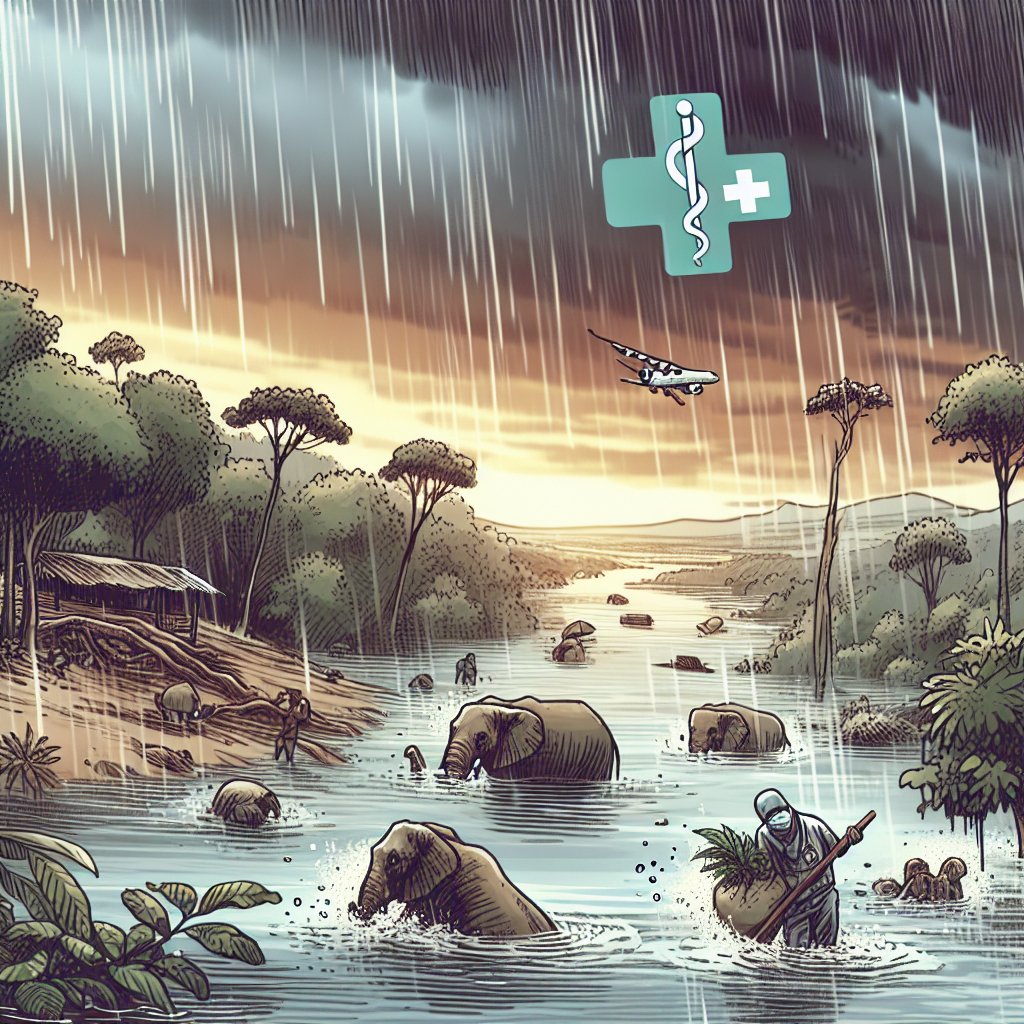Central Europe Confronts Devastating Floods: Death Toll Rises
Severe flooding in Central Europe has led to significant destruction, forced evacuations, and a growing death toll. The regions between Poland and the Czech Republic were particularly hard-hit, leading to submerged towns and disrupted lives. Authorities are seeking financial aid and preparing for potential further floods.

Residents of several areas of Poland and the Czech Republic rushed to evacuate on Monday, as others in central Europe began cleaning up after the worst flooding in over two decades left a trail of destruction and a rising number of deaths.
Border areas between the Czech Republic and Poland were hit hard over the weekend as heavy rain that has fallen since last week and surging water levels collapsed some bridges, forced evacuations and damaged cars and houses. At least 14 people have died in flooding from Austria to Romania in the past few days.
On Monday, the Topola reservoir in southern Poland overflowed and water was gushing towards the village of Kozielno. Local authorities said residents of several nearby towns and villages would be evacuated. In the northeastern Czech city of Ostrava, a broken barrier on the Odra river at its confluence with the also-flooded Opava river, caused unexpected flooding of the city's industrial area, including the BorsodChem chemical plant, coking plant OKK Koksovny and others, as well as more residential areas from where hundreds of people were being evacuated.
In the Czech town of Litovel, 70% of which was submerged by water up to a metre deep (3.2 feet) on Monday, residents described their fear as waters rose quickly over the weekend. "I was just very, very afraid... I ran away because the water was rising very quickly near the house," said Renata Gaborova, 39.
NATURAL DISASTER Poland's government announced a state of natural disaster in affected areas and said that it had set aside 1 billion zlotys ($260 million) to help victims.
Prime Minister Donald Tusk said he was in touch with the leaders of other affected countries and that they would ask the European Union for financial aid. Michal Piszko, mayor of the Polish town of Klodzko along the Czech border, said waters had receded there but help was needed.
"We need bottled water and dry provisions... half of the city has no electricity," he told Polish radio. Television footage showed streets in Klodzko strewn with debris and mud. In the Polish town of Nysa, a hospital was evacuated, with patients including pregnant women and elderly people taken away in rafts.
In Jesenik, a Czech town across the border that was inundated on Sunday, a clean-up was starting after waters receded to show damaged cars and debris on the streets. "There were two metres of water that ran through the street... There are many, many destroyed cars," said resident Zdenek Kuzilek. "Telephones are not working, there is no water, no electricity."
In eastern Romania, where villages and towns were submerged over the weekend, Emil Dragomir, mayor of Slobozia Conachi, told Romanian television the flooding had a devastating impact. "If you were here you would cry instantly because people are desperate... Many were left with just the clothes they had on," he said.
PREPARATION While water was receding in some areas, others were shoring up defences for floods heading their way. In Wroclaw, in the southwestern region of Silesia, the mayor Jacek Sutryk said the city of some 600,000 people was preparing for water levels peaking on Wednesday.
In Romania, the flooding killed six people over the weekend. An Austrian firefighter died on Sunday. In the state of Lower Austria that surrounds Vienna, two men aged 70 and 80 were found drowned in their homes, a police spokesperson said on Monday. Polish police said four people died as a result of floods in Poland, while state news agency PAP earlier reported five deaths, and in the Czech Republic one person died, a police official said.
Slovakia's capital Bratislava and the Hungarian capital Budapest were both preparing for possible flooding as the River Danube rose. Hungarian Interior Minister Sandor Pinter said efforts were focused on keeping the river and its tributaries within their banks and said up to 12,000 soldiers were on standby to help.
In Austria, the levels of rivers and reservoirs fell overnight as rain eased but officials said they were bracing for a second wave as heavier rain was expected. ($1 = 3.8398 zlotys)
(With inputs from agencies.)










